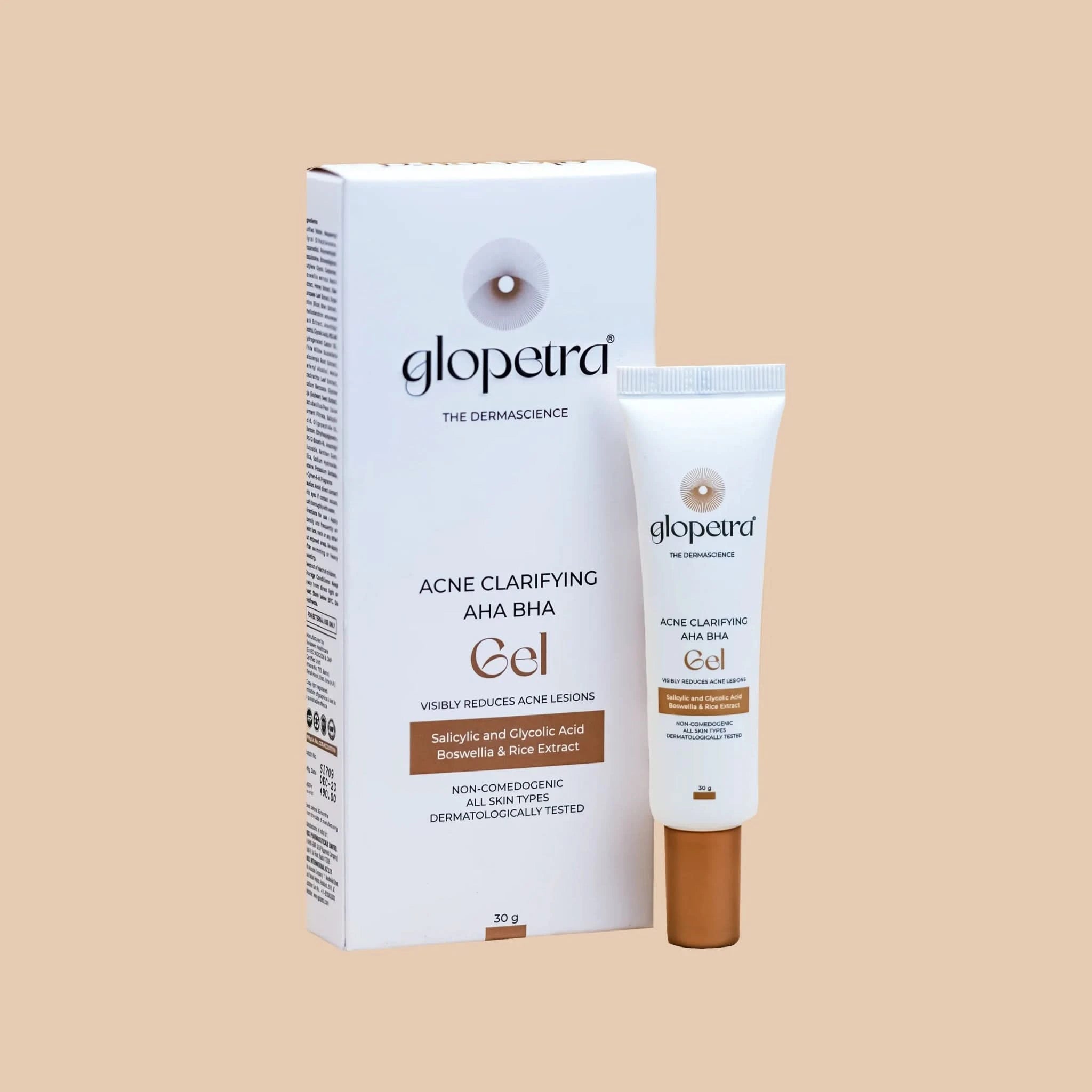
Niacinamide vs. Retinol: Which is Better for Your Skin Type?
Niacinamide vs. Retinol: Which is Better for Your Skin Type? - In the ever-evolving landscape of skincare, especially anti-aging products, Niacinamide and Retinol are the two names that are in the massive spotlight. Both are active ingredients and are known to offer multiple benefits to the skin. If you are planning to add Niacinamide and Retinol to your skincare regimen. Good decision! But don’t forget that both are still different. In this blog, we at Glopetra break down Niacinamide vs. Retinol: Which is Better for Your Skin Type? The answer will blow your mind.
Niacinamide and retinol are used in various skin care products including serums, lotions, creams, and others. Both these ingredients contain remarkable anti-inflammatory properties and help to boost collagen production and lighten wrinkles, hyperpigmentation, and fine lines. However, some characteristics differentiate niacinamide from retinol or vice versa. In this comprehensive guide, we will discuss Niacinamide vs. Retinol: Which is Better for Your Skin Type? So, that you can make the right decision for your skin health.
What is Retinol & It’s Functions
Retinol is a natural and fat-soluble member of the Vitamin A family. It is mostly found in food like eggs, carrots, and others. When applied directly to the skin, it helps to boost collagen production, minimize pores, and boost skin cell renewal. It also controls the excess sebum production and gives you balanced and clear skin.
What is Niacinamide & It’s Functions
Niacinamide, also known as nicotinamide. It is derived from Vitamin B3, which is water soluble. Vitamin B3 is a crucial nutrient and is important to maintain your body's health.
Niacinamide serums help to enhance skin moisture and boost keratin production. It also helps to improve the skin tone and make it more supple. Featuring anti-oxidant properties, Niacinamide also helps to address free radicals and minimize inflammation.
Niacinamide vs. Retinol: Which is Better for Your Skin Type?
Below we have mentioned the key difference between niacinamide and retinol. So, read it carefully to find out which one is best suitable for your skin.
Let’s dive in!

1. Retinol is mostly stronger than niacinamide.
2. Sensitive skin can get easily affected by retinol as compared to niacinamide.
3. Retinol penetrates the outer layer of the skin while niacinamide penetrates deeper into the skin.
4. Retinol has anti-ageing benefits while niacinamide serum is known to maintain and enhance skin health.
5. You can start using retinol and niacinamide at the age of 20.
6. Niacinamide is suitable for all skin types. But people who have allergic skin can avoid niacinamide. Retinol is a strong ingredient and is not perfect for everyone. Individuals with allergies-prone or sensitive skin should avoid retinol application.
Is It Beneficial Using Niacinamide & Retinol Together
As we discussed earlier, retinol and niacinamide, both are good and can offer amazing results depending on your skin type. Yes, it is safe to use the combination of niacinamide and retinol. Many skincare products are formulated with a blend of niacinamide and retinol. Blending both these ingredients to your skincare routine can give you fabulous results.

You can mix retinol with niacinamide and also use products that contain both ingredients. Furthermore, you can also apply it on the same day but at different times. As we know, retinol application can increase your skin's sensitivity to sunlight. So, it is recommended to use it during your pm routine.
Using retinol at night and niacinamide in your morning routine can give you the finest skin that you are looking for. By using this genuine technique, you can get the perfect benefits from both ingredients without harming your skin and without the worry of photosensitivity.

Retinol is an active ingredient and can also lead to dryness. On the flip side, niacinamide is loaded with superb moisturizing benefits and can deal with dryness. Infact, studies also suggest that using niacinamide and retinol can also treat acne issues. It will help to calm the irritation and keep the skin hydrated rather than using retinol products alone.
You can also increase your skin’s tolerance to retinol by minimizing the possibility of irritation by combining both chemicals.
Choose Glopetra - Yes, Our Products Does Wonder To Your Skin
If you want that dreamy glow, Glopetra is here for it. Explore our collection of high-end skin care products including moisturizers, serums, sunscreen, and others, and get ready to see the difference. Featuring paraben-free ingredients and approval from dermatologists, every product works effectively on the skin to treat the issue from roots and give flawless and healthy skin. All our products are suitable for all skin types and offer various benefits.
Check out Glopetra Retinol Serum and Niacinamide & Hyaluronic acid serum to level up your skincare game.
Wrapping Up!
So there you have it skincare lovers - Niacinamide vs. Retinol: Which is Better for Your Skin Type? Both niacinamide and retinol offer unique benefits to the skin and can be used together for an effective skincare routine. When incorporating such active ingredients into your skincare routine, it is important to consider your specific skin type and any existing skin concerns.
Don’t forget to browse Glopetra’s exclusive and effective skin care products.
We hope you find all the answers that you are looking for.
People May Also Ask For Niacinamide vs. Retinol: Which is Better for Your Skin Type?
Q1: Can I use niacinamide and retinol together?
Ans: Yes, it is generally safe to use niacinamide and retinol together. Many skincare products are formulated with a blend of both ingredients.
Q2: At what age can I start using niacinamide and retinol?
Ans: You can start using both niacinamide and retinol at the age of 20, although it's important to consider your specific skin type and any existing skin concerns.
Q3: Which is better for sensitive skin, niacinamide or retinol?
Ans: Niacinamide is generally better for sensitive skin compared to retinol, which can potentially irritate sensitive skin.










